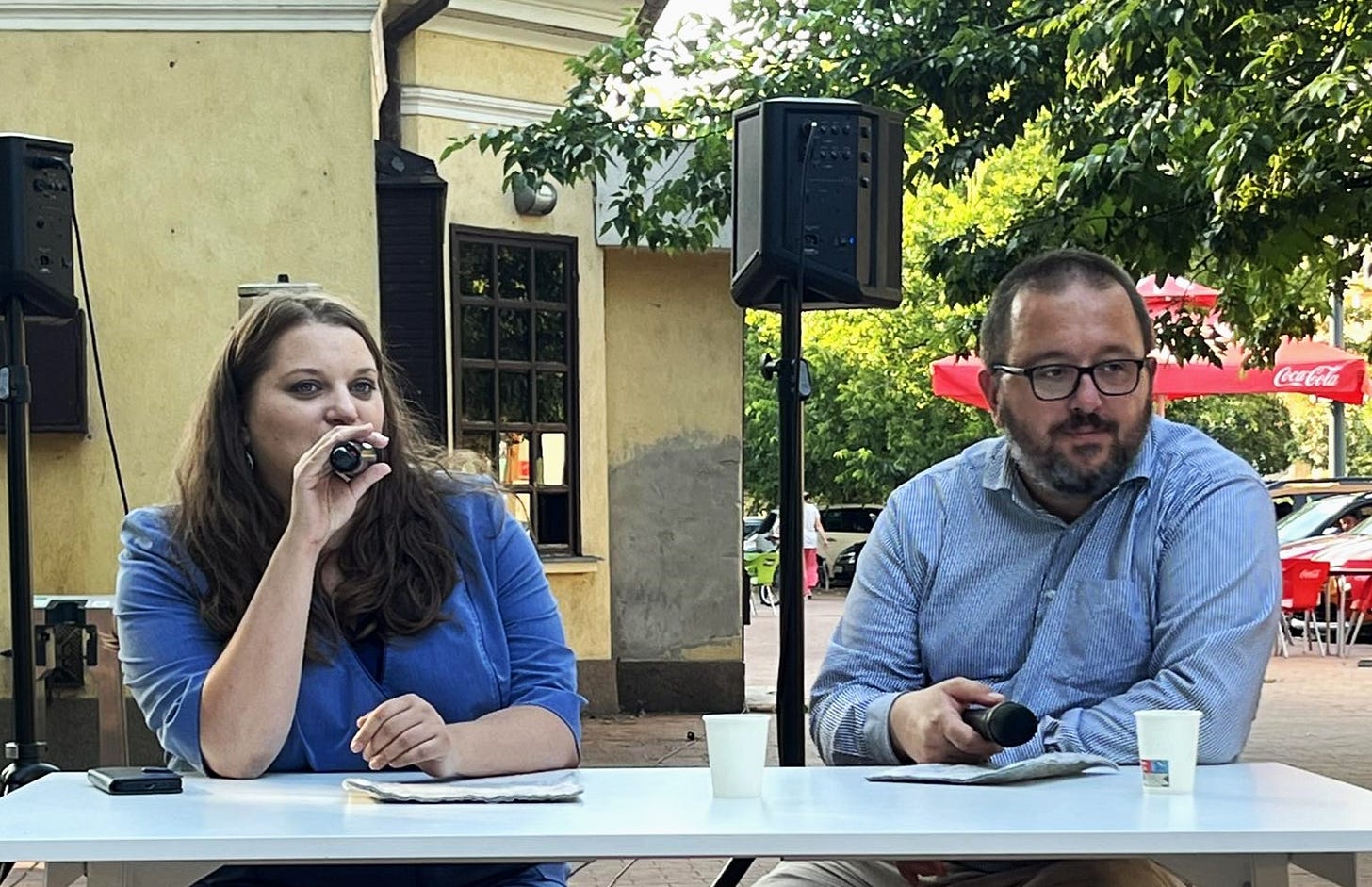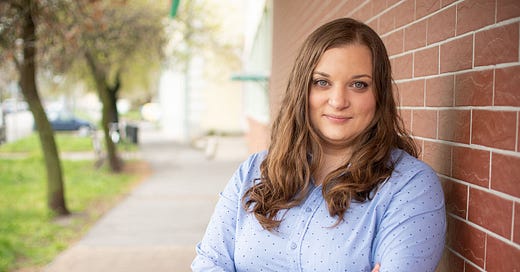From the Sultans to Orbán
I am a fan of maps. They show you things, especially in politics. You can trace on Poland’s map where the old frontier between the German and the Russian Empire was. You can see where the United Kingdom’s disillusioned white workers live and voted for Brexit. You can find Trumpland in the US and Le Pen land in France.
You could also see that in the Great Plain region of Hungary small villages are absent. During the Ottoman occupation of Hungary, the Sultan gave smaller villages to the sipahi cavalrymen as a timar land grant. Larger and better settlements were kept for the Imperial household as hass-ı hümayun, imperial domain. Smaller villages perished and the former hass towns survived. In modern maps this is Orbánland.
Come with me to Orbánland, to a town called Orosháza. Here I went to meet Éva Sebők, a member of the Momentum Party and the Hungarian Parliament.
Is it really Orbánland? Yes.
Ms. Sebők hails from Orosháza, Southeastern Hungary. Orosháza is a typical Great Plains town, a former hass domain of the mighty Sultan. These towns usually have a population of 20-30,000 people. Orosháza has 27.000. There is usually a good high school (dating back to the late 18th century), sometimes even a college. There is an old and famous food or drink factory and some light industry. Orosháza was known for its poultry and glass industry. Almost all of them are now closed or on the brink of closing. Spas are also quite common because of the hot water resources of Hungary. There is one in Orosháza too. These towns are beautiful in their own way. But their economy struggles and their population is dwindling. Comecon exports supported local industry, but that is long past.
Their population, as one would expect, is right-leaning and conservative.
In the 2022 General Elections, Orbán’s Fidesz party won 49%. The larger opposition parties supported a member of the far right Jobbik party as a joint candidate. He got 39%. So 90% percent here vote for far right conservatives. Ms. Sebők won her mandate from the joint opposition list.
Orosháza is also the former borough of György Simonka. Mr. Simonka is a true local party boss and one of the very few members of the ruling Fidesz party who ever had to face corruption charges. The prosecutor wants a 8.5 year prison sentence. The court held 25 hearings…then the judge was promoted at a surprisingly young age to the Kúria (supreme court) and the whole process now has to start over. This is Hungarian judicial independence for you.
Ms. Sebők is a member of the Momentum Party, a party of liberal young professionals. Momentum is strong in Budapest, but most of its presence on the countryside relies on individuals like Éva Sebők.
So, this is where we go, come with me to see some of the politics of Deep Hungary!
Chess tables and ice cream
After arriving in Ms. Sebők’s battered Ford, we start to get some furniture out from the local Momentum office. There are 15 seats, Ms. Sebők expects 5 people. The first time had three viewers, the second one had four. I’m her third guest in a series in which she discusses national and local politics with experts and opinion leaders.
There are a couple of chess tables to our right where an unusual high number of chess enthusiasts follow the only game going on. They pretend not to notice us.
There are people who feel a sudden urge to have an ice cream from a nearby booth and take a walk in the park around us.
There are some senior citizens around us, who think that this fine Thursday afternoon is a great time to enjoy some fresh air on the nearby benches.
They are afraid to be seen on an opposition event
But nobody actually sits on our seats. They are afraid to be seen on an opposition event, Ms. Sebők tells me. We turn our table to face the chess people and the park and crank up the volume of the speakers. Ms. Seből later points to a gentleman, also inconspicuously walking around. The mayor’s media guy. Of course this event won’t appear in the local media, but the guy is curious.
Determination
It takes hell of a lot of determination to do what Ms. Sebők does. The whole situation is oozing from awkwardness. People are interested but they don’t dare to actually show that. You have to pretend not to realize they are there yet still talk to them. Ms. Sebők seems to be well used to the feeling.
Our topic is good quality government, using good quality internet-based solutions. It’s like talking about the first Hungarian intergalactic battleship. But we do that. We cite success stories from other countries. We give practical examples how this place could be happier with some quality government. People listen to us. We even get some questions. The chess party next to us stops altogether. Experimentally I talk about better hardware and software background of the police. The policeman present stops pretending to be not interested.

Ms. Sebők talks about how a couple of buses could vitalize the city. I talk about how a clever app could help the local government.
Taxpayer money spent on stupid stuff
Talking about the local government, next to us is a bicycle rental terminal. The fee is HUF 900 (EUR 2) for an hour. The bikes are in a shiny new, unused condition. Of course they are. Everyone in Orosháza has a bike. It’s a flatland, even elderly people can easily pedal around. An old dotto train, a familiar sight from Italian beach towns clunkers away on a nearby street. Both the bikes and the dotto are rumoured to be Mr. Simonka’s (the local Fidesz party boss) business. They have zero users.
The event is over and we head over to a local pizzeria where Ms. Sebők started to work at the age of 16 with her scooter delivering pizza.
Then back to Budapest. The old Ford will show up at two other towns the day after, Ms. Sebők doing local opposition politics there. I still feel utter hopelessness many days after. Not because the event was hopeless. Because there are too few Éva Sebőks doing this kind of work. Too few people in this country understand that part of politics is to buy an old clunker of a car, clock a thousand miles in it every month and meet your voter base. Granted, enjoying a latte next to the Parliament in Budapest is a more relaxed experience. But it never wins elections. A lesson most Hungarian politicians failed to learn.






